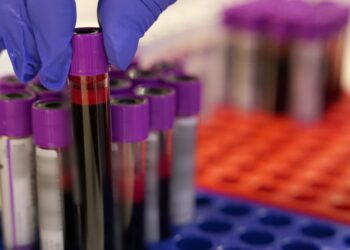There’s plenty of one-size-fits-all nutrition advice. But there’s mounting evidence that people respond differently to food, given differences in biology, lifestyle and gut microbiomes.
The National Institutes of Health wants to learn more about these individual responses through a Nutrition for Precision Health study, and this week researchers began enrolling participants to take part in the study at 14 sites across the U.S.
It’s part of the All of Us research initiative that aims to use data from a million participants to understand how differences in our biology, lifestyle and environment can affect our health.
Holly Nicastro of the NIH Office of Nutrition Research says the goal of the precision nutrition study is to help develop tailored approaches for people. “We’ll use machine learning and artificial intelligence to develop algorithms that can predict how individuals will respond to a given food or dietary pattern,” Nicastro says.
The study will take into account a person’s genetics, gut microbes, and other lifestyle, environmental and social factors “to help each individual develop eating recommendations that improve overall health,” Nicastro says.
The Dietary Guidelines for Americans are helpful in setting overall recommendations for healthy eating, yet Nicastro points to studies that show how much variation there can be in how individuals respond to specific foods or diets. For instance, a published study showed that even when people eat identical meals, their levels of triglycerides, glucose and insulin response can vary.
As part of the study, some participants will live in a dormitory-style setting for two-week stretches where they will rotate through three different types of diets. Researchers will measure body weight and vital…
Read the full article here







